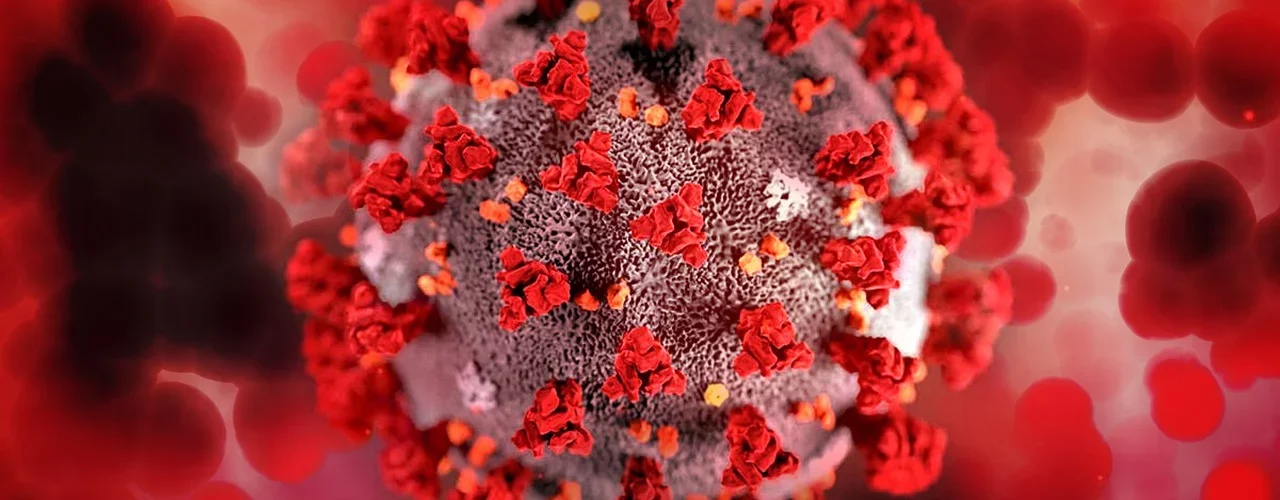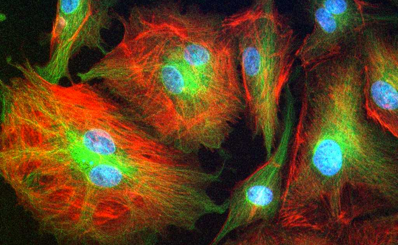Born ready: how shifting vaccination policies could jeopardise the next generation

A new year is here and, unfortunately, the wind-down from festivities isn’t the only buzzkill facing children returning to school and adults to their offices. Winter this year has been rife with the spread of viral infections like flu and COVID-19, with NHS England reporting a 350% increase in cases of respiratory infection in December 2024 compared to a year prior[1]. With such a surge in respiratory illness, immunocompromised individuals such as the elderly or very young will, undoubtedly, be hit hard, but new research has found that germs wreak havoc on health even before birth.
A recent study[2] looked at health data from pregnant women presenting with COVID-19 and compared them with non-infected women. Specifically, they measured telomere length in the newborns — telomeres being redundant chunks of DNA at the ends of chromosomes which are continually shaved off as cells divide. Telomeres, thereby, protect the important genes more central to the chromosome and their length has previously been considered an indicator of lifespan[3][4], with longer telomeres correlating with longer life.
A core finding of the study was that newborns from infected mothers had significantly shorter telomeres than non-infected mothers, but only if infection occurred in the first and second trimesters of pregnancy, with no shortening apparent if infected in the third trimester. In fact, the shortening was more severe the earlier in the pregnancy infection occurred. This suggests that maternal infection may contribute to a reduced life expectancy for these children.
The authors recommended vaccination for those planning pregnancy as it is known that protective antibodies generated by vaccination can be transferred from mother to foetus across the placenta[5], potentially limiting infection severity.
A recent and concerning development has taken the form of the Joint Committee of Vaccination and Immunisation (JCVI) recommending that free COVID-19 vaccinations no longer be made available to pregnant women in the UK from spring 2025[6]. In addition to the potential long-term impact on lifespan, COVID-19 can prove fatal to the foetus with its developing immune system incapable of combating infection.
The JCVI have argued that cutting back on free vaccinations will prove cost-effective[7], but their means of calculating this has attracted criticism for its lack of transparency. Other concerns include the failure to provide detailed information on the impact of COVID-19 on infants and pregnant women and the neglected consideration of miscarriage and stillbirth as death statistics which inform this decision.
With chemists and private clinics setting their own rates for COVID-19 vaccinations, reportedly ranging from £45 to £99 per jab[8], it is crucial for parents to be aware of this upcoming change and plan accordingly.
[1] www.england.nhs.uk/2024/12/hospitals-managing-record-flu-levels-going-into-winter/
[2] https://translational-medicine.biomedcentral.com/articles/10.1186/s12967-024-05879-0
[3]https://pmc.ncbi.nlm.nih.gov/articles/PMC3277142/
[4] www.sciencedirect.com/science/article/pii/S2001037022003397
[5] https://pmc.ncbi.nlm.nih.gov/articles/PMC9203883/
[6] www.manchester.ac.uk/about/news/the-uk-is-no-longer-offering-covid-vaccines-to-pregnant-women–heres-why-that-might-be-a-bad-idea/
[7] www.gov.uk/government/publications/covid-19-vaccination-in-2025-and-spring-2026-jcvi-advice/jcvi-statement-on-covid-19-vaccination-in-2025-and-spring-2026
[8] www.bbc.co.uk/news/health-55045639#
Edited by Daisy Lints
Copyedited by Bavishya Tata







